‘Let down and neglected’: the key findings of MPs’ education report
Commons committee claim ‘white privilege’ contributing to ‘systemic neglect’ of white working-class pupils
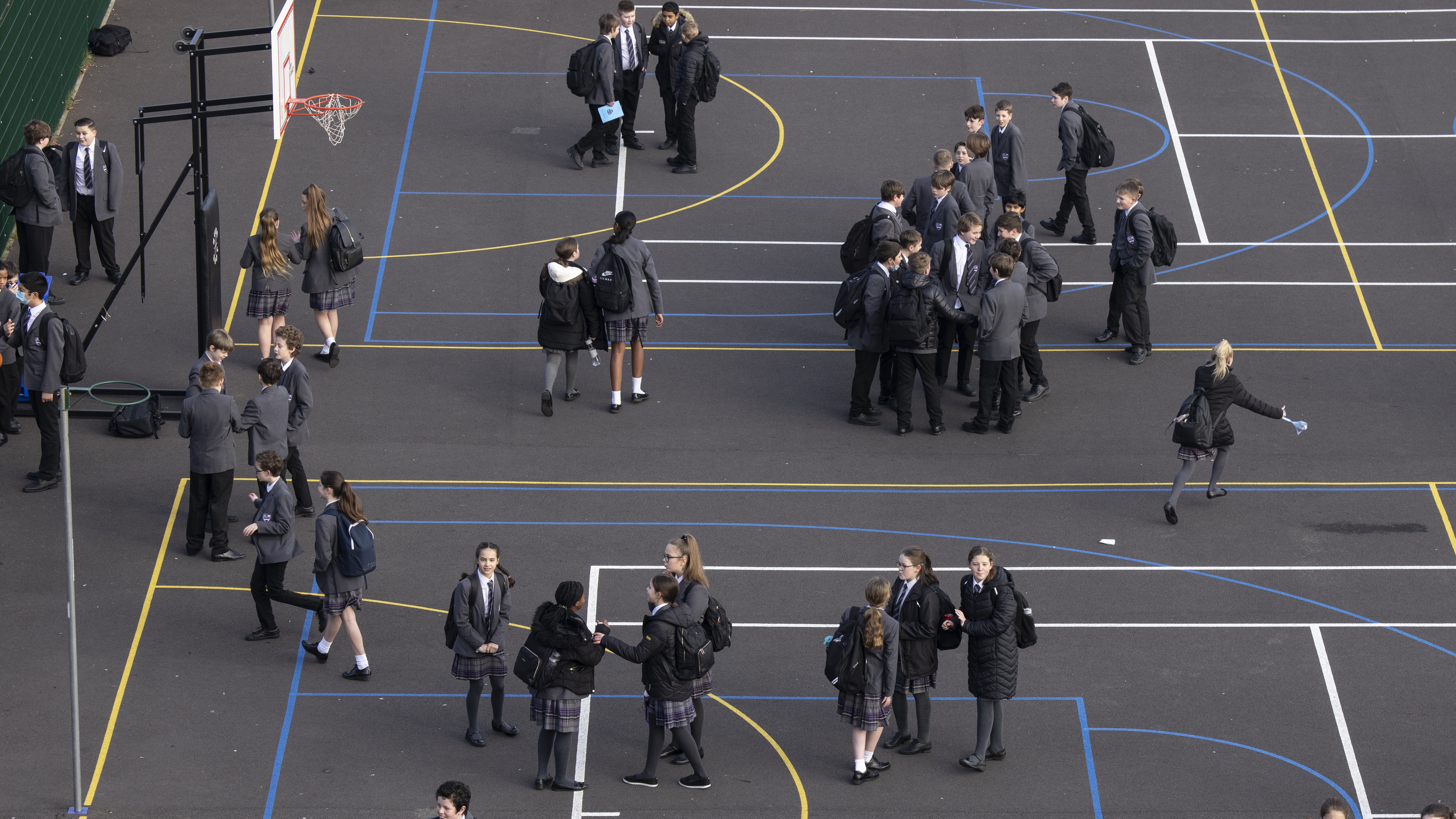
A free daily email with the biggest news stories of the day – and the best features from TheWeek.com
You are now subscribed
Your newsletter sign-up was successful
Disadvantaged white pupils are being left behind as a result of the government’s “muddled thinking” about how to close the attainment gap, according to a damning new report by MPs.
The Department of Education (DfE) has “shown little interest” in exploring why white working-class pupils are underperforming “relative to similarly deprived peers”, says the Education Select Committee.
In a statement summarising the findings, Robert Halfon, the Tory chair of the committee, claims that these white pupils have been “let down and neglected” by a system that “condemns them to falling behind their peers every step of the way”.
The Week
Escape your echo chamber. Get the facts behind the news, plus analysis from multiple perspectives.

Sign up for The Week's Free Newsletters
From our morning news briefing to a weekly Good News Newsletter, get the best of The Week delivered directly to your inbox.
From our morning news briefing to a weekly Good News Newsletter, get the best of The Week delivered directly to your inbox.
But the inquiry report has been “disowned” by fellow committee member Kim Johnson. The Labour MP told The Guardian that the inquiry “cherrypicked data” in an apparent bid to “create a bit of a culture war”.
‘Far from privileged’
“If the government is serious about closing the overall attainment gap then the problems faced by the biggest group of disadvantaged pupils can no longer be swept under the carpet,” argues Halfon.
“Never again should we lazily put the gap down to poverty alone, given that we know free school meal-eligible pupils from other ethnic groups consistently outperform their white British peers.”
A free daily email with the biggest news stories of the day – and the best features from TheWeek.com
His committee’s report claims that terms such as “white privilege” are “alienating to disadvantaged white communities” and may have contributed towards a “systemic neglect” of pupils in need of additional support.
“Our inquiry has shown that poor white pupils are far from ‘privileged’ in education,” the report states.
The inquiry found that in 2018-19, just 53% of white British pupils on free school meals met the expected standard of development at the end of the early years foundation stage - which as The Telegraph notes, is “one of the lowest percentages for any disadvantaged ethnic group”.
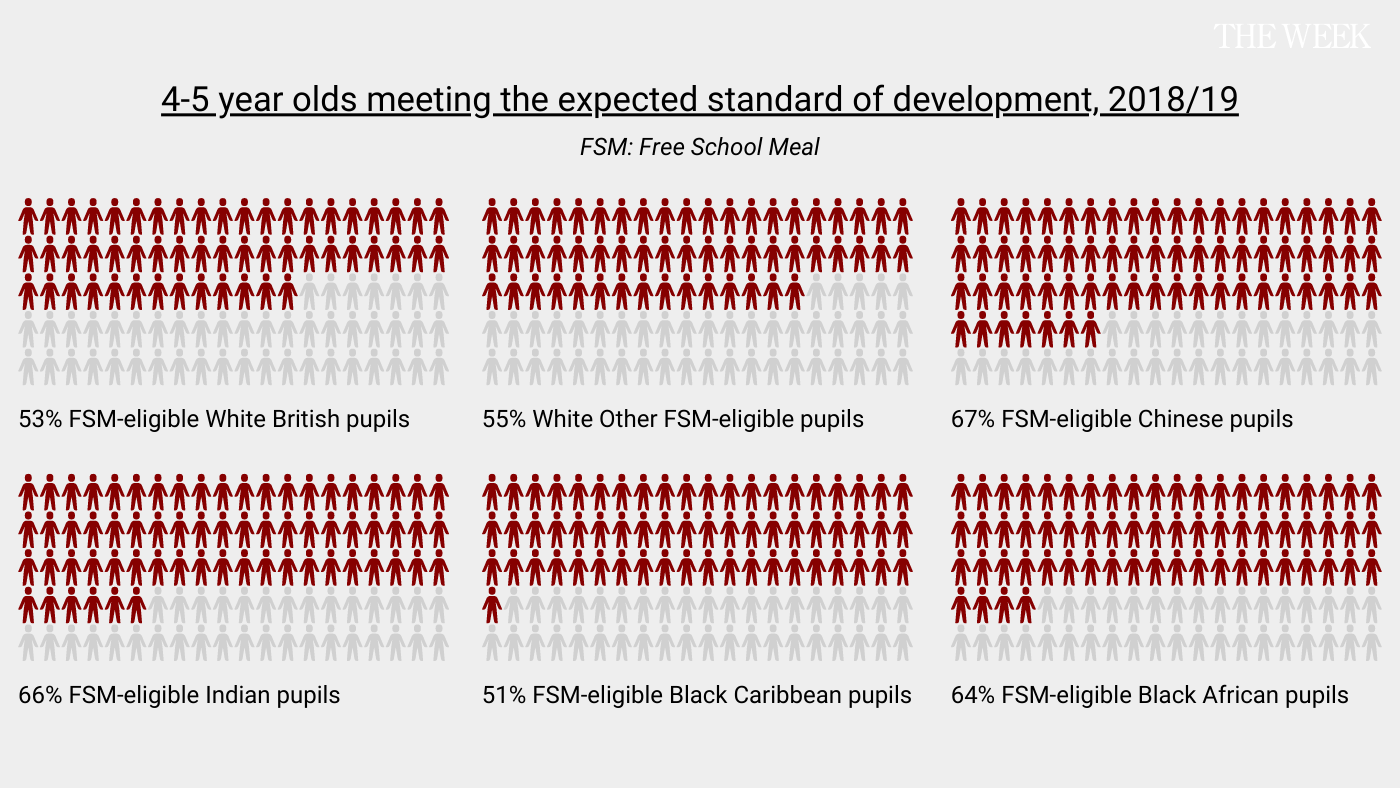
And less than 18% of white British pupils on free meals achieved grade four in English and Maths, compared with 22.5% of their peers in the same income bracket.
Halfron has accused the DfE of being “reluctant” to recognise the specific challenges faced by the white working-class, “let alone do anything to tackle this chronic social injustice”.
The inquiry found that only 16% of these disadvantaged pupils went on to study at university after finishing school, “the lowest of any ethnic group other than traveller of Irish heritage and Gypsy/Roma”, the report says.
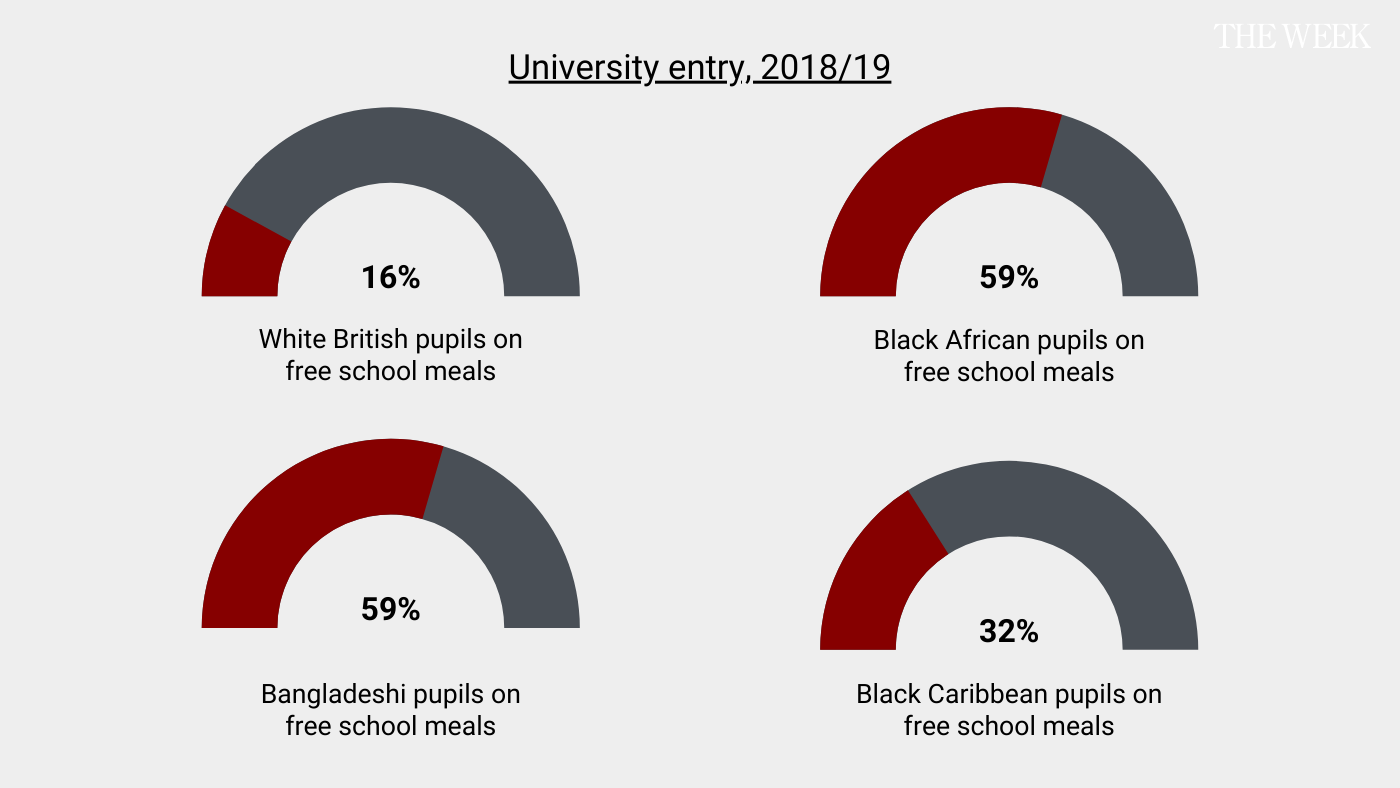
The MPs argue that disadvantaged white pupils are being held back by a variety of “economic and cultural factors”, including living in families with “multi-generational poverty”; having disengaged parents with a poor experience of education; a lack of community social organisations; and poor local services and transport.
Suggested measures to help lessen the learning gap include finding “a better way to talk about racial disparity”; using pupil premium funding to provide children with additional support; and the creation of “family hubs” to get parents more involved in the education process.
‘Well-known challenge’
“The content of this latest report will come as no surprise to some,” writes Nazia Parveen, The Guardian’s community affairs correspondent. Parveen notes that the MPs refer repeatedly to the findings of the Commission on Race and Ethnic Disparities, which published a government-commissioned report in March that critics described “as stark, contentious and a means of igniting a culture war”.
The “provocative” tone of both reports in relation to terms such as “white privilege” chimes with previous claims by Equalities Minister Kemi Badenoch that schools which present the theory as an uncontested fact could be breaking the law, Parveen adds.
During a Commons debate last October on Black History Month, Badenoch said that the government did not want white children being taught about “white privilege and their inherited racial guilt”.
The report from Halfron’s committee states that schools “should consider whether the promotion of politically controversial terminology, including white privilege, is consistent with their duties under the Equality Act 2010”, and that the DfE should “take steps to ensure that young people are not inadvertently being inducted into political movements”.
The recommendation has met with a mixed response from other commentators.
GB News reporter Inaya Folarin Iman is also “critical” of the idea of white privilege, but rejects the idea that those promoting the concept are “contributing to the neglect of working-class boys”. Pointing the blame at “successive governments systematically choosing policies” that have failed to address the problem, she says: “There is a danger in thinking the reasons why people have been neglected, entrenched social and economic disadvantage, is to do with the culture wars, rather than that they have genuinely been ignored.”
Labour MP Diane Abbott tweeted that the report was “shameful” for suggesting that “white working class children underachieve because of their colour rather than a general lack of investment in education”.
Meanwhile, DfE policy advisor Sam Freedman argues that Halfon is unfair to blame his department for what is “well-known challenge in predominantly white low-income communities”.
“The idea the education sector ignores it out of some misplaced ‘wokeness’ is absolute nonsense,” tweets Freedman. It is “perfectly possible” to focus on white working-class underachievement “while also working against the impact of structural racism which causes a whole load of other educational and social problems”, he concludes.
Sorcha Bradley is a writer at The Week and a regular on “The Week Unwrapped” podcast. She worked at The Week magazine for a year and a half before taking up her current role with the digital team, where she mostly covers UK current affairs and politics. Before joining The Week, Sorcha worked at slow-news start-up Tortoise Media. She has also written for Sky News, The Sunday Times, the London Evening Standard and Grazia magazine, among other publications. She has a master’s in newspaper journalism from City, University of London, where she specialised in political journalism.
-
 The ‘ravenous’ demand for Cornish minerals
The ‘ravenous’ demand for Cornish mineralsUnder the Radar Growing need for critical minerals to power tech has intensified ‘appetite’ for lithium, which could be a ‘huge boon’ for local economy
-
 Why are election experts taking Trump’s midterm threats seriously?
Why are election experts taking Trump’s midterm threats seriously?IN THE SPOTLIGHT As the president muses about polling place deployments and a centralized electoral system aimed at one-party control, lawmakers are taking this administration at its word
-
 ‘Restaurateurs have become millionaires’
‘Restaurateurs have become millionaires’Instant Opinion Opinion, comment and editorials of the day
-
 American universities are losing ground to their foreign counterparts
American universities are losing ground to their foreign counterpartsThe Explainer While Harvard is still near the top, other colleges have slipped
-
 Oklahoma fires instructor over gender essay grade
Oklahoma fires instructor over gender essay gradeSpeed Read
-
 Education: More Americans say college isn’t worth it
Education: More Americans say college isn’t worth itfeature College is costly and job prospects are vanishing
-
 The Trump administration’s plans to dismantle the Department of Education
The Trump administration’s plans to dismantle the Department of EducationThe Explainer The president aims to fulfill his promise to get rid of the agency
-
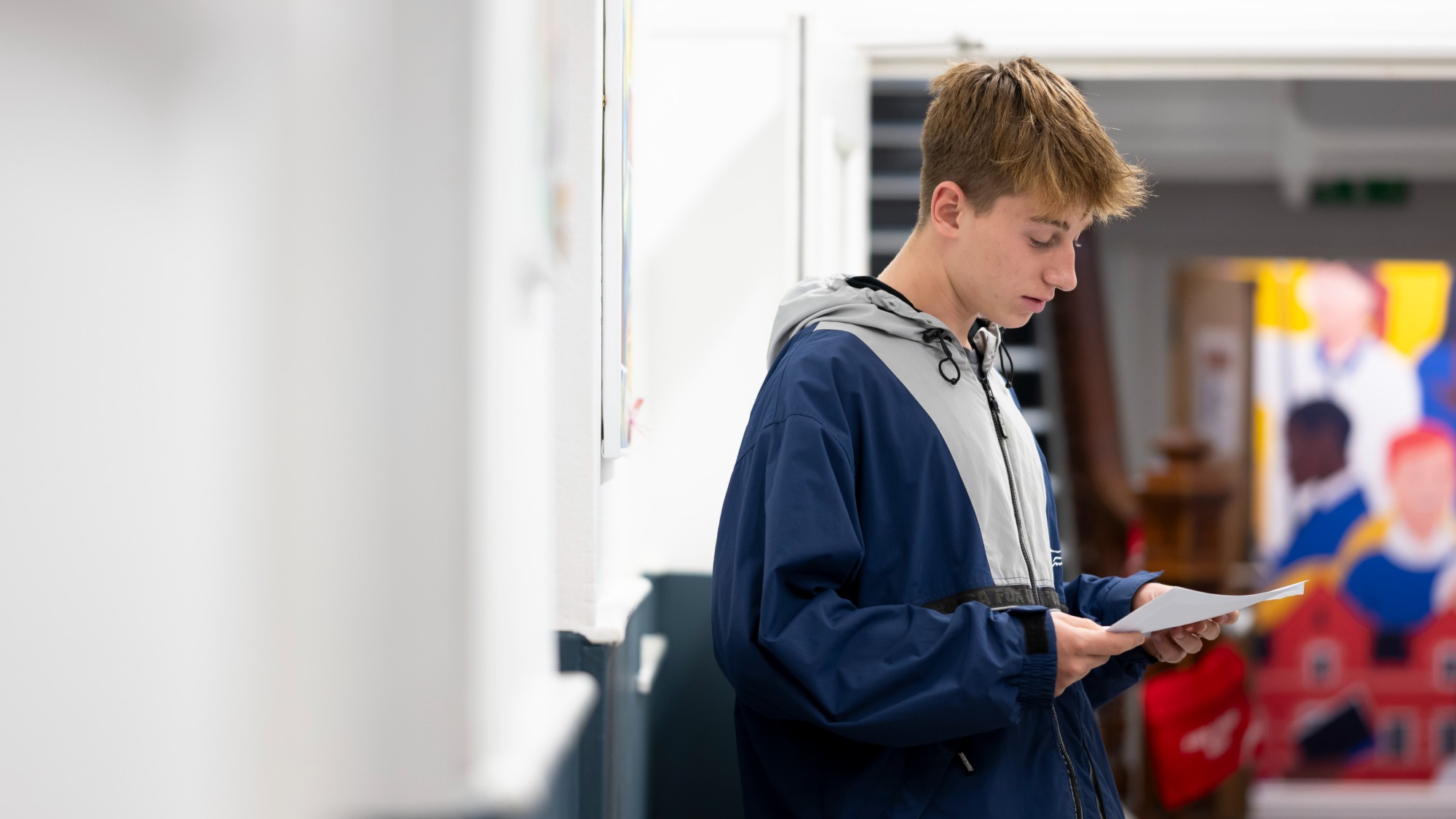 How will new V level qualifications work?
How will new V level qualifications work?The Explainer Government proposals aim to ‘streamline’ post-GCSE education options
-
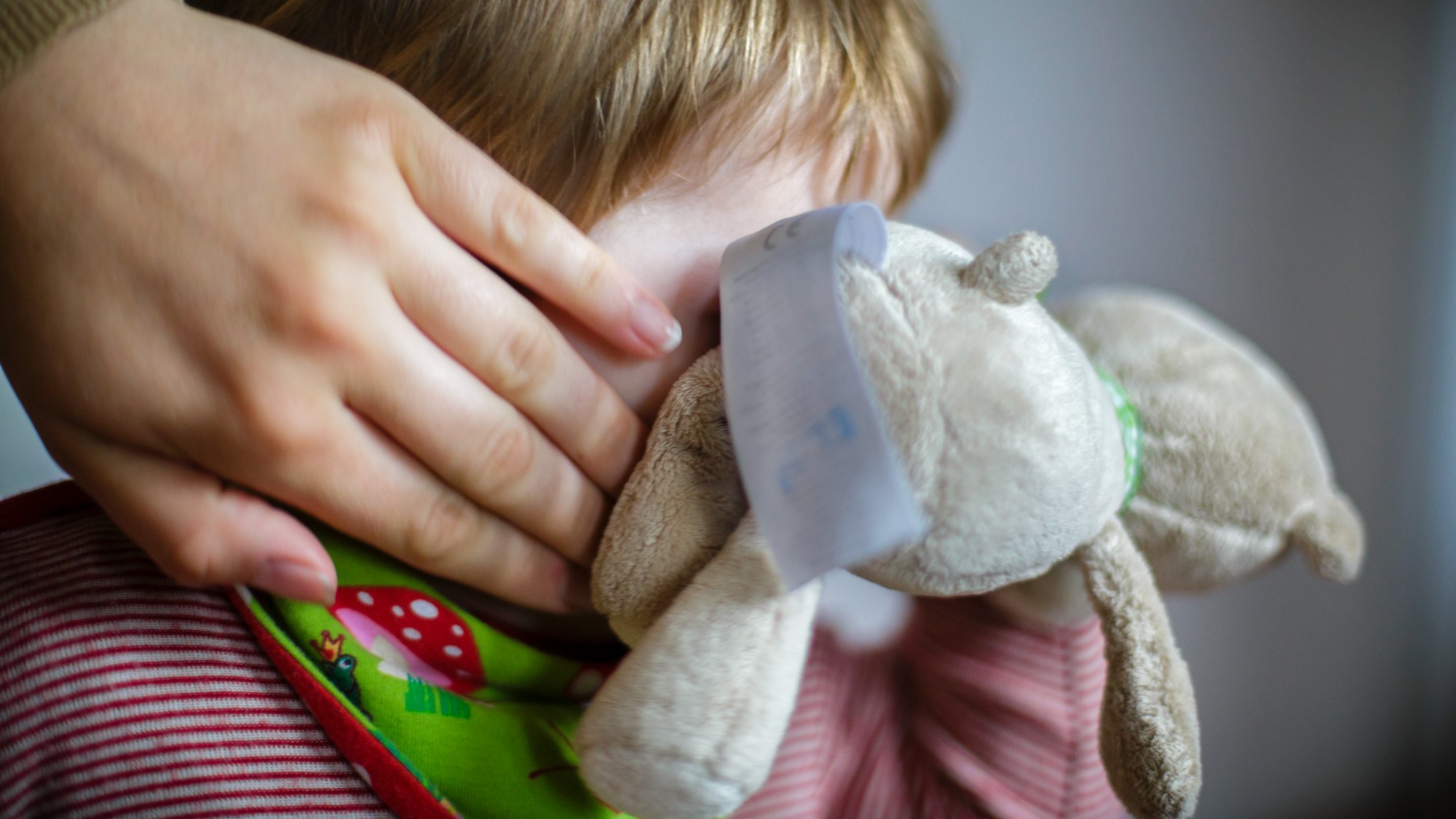 England’s ‘dysfunctional’ children’s care system
England’s ‘dysfunctional’ children’s care systemIn the Spotlight A new report reveals that protection of youngsters in care in England is failing in a profit-chasing sector
-
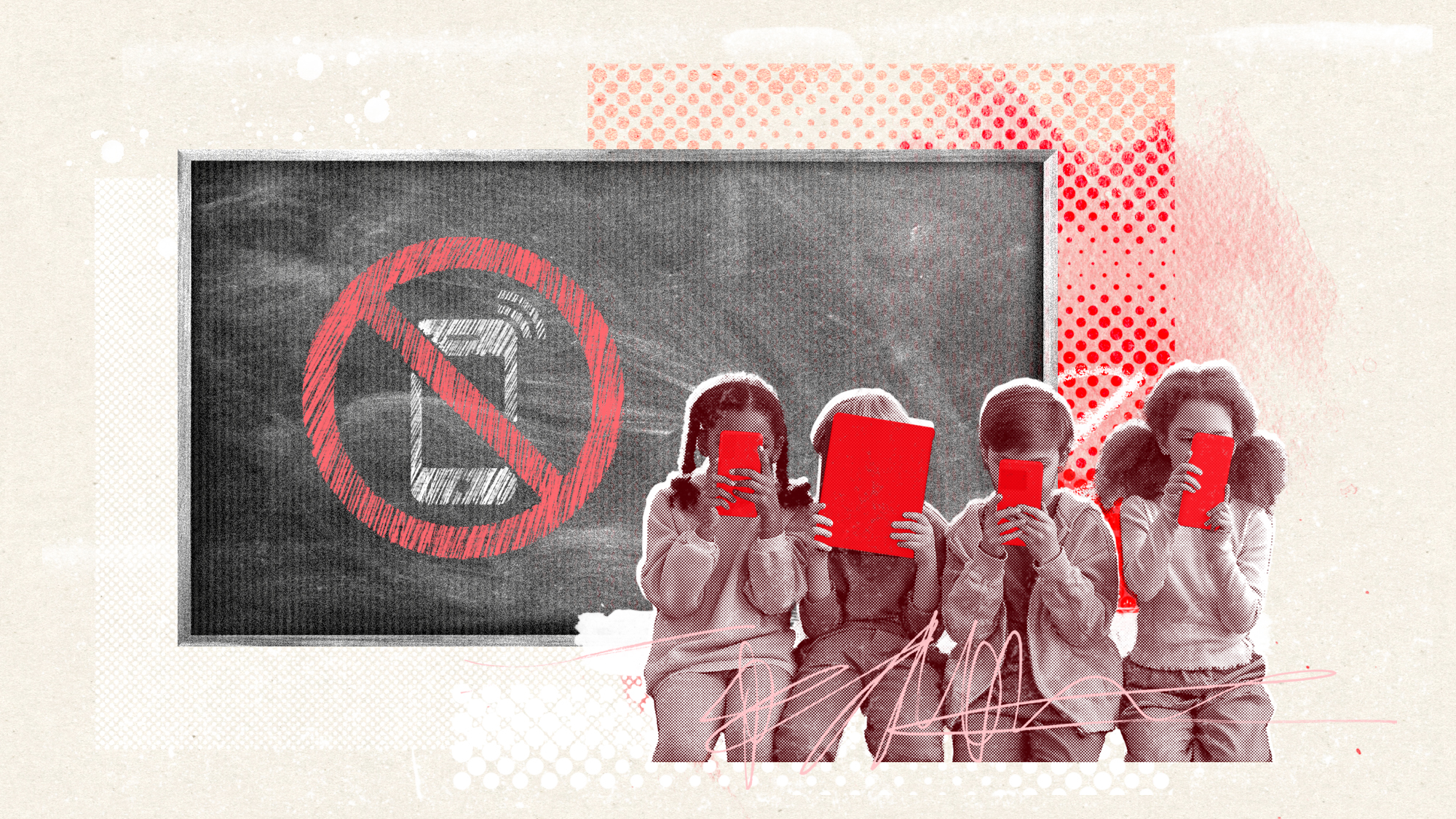 The pros and cons of banning cellphones in classrooms
The pros and cons of banning cellphones in classroomsPros and cons The devices could be major distractions
-
 School phone bans: Why they're spreading
School phone bans: Why they're spreadingFeature 17 states are imposing all-day phone bans in schools